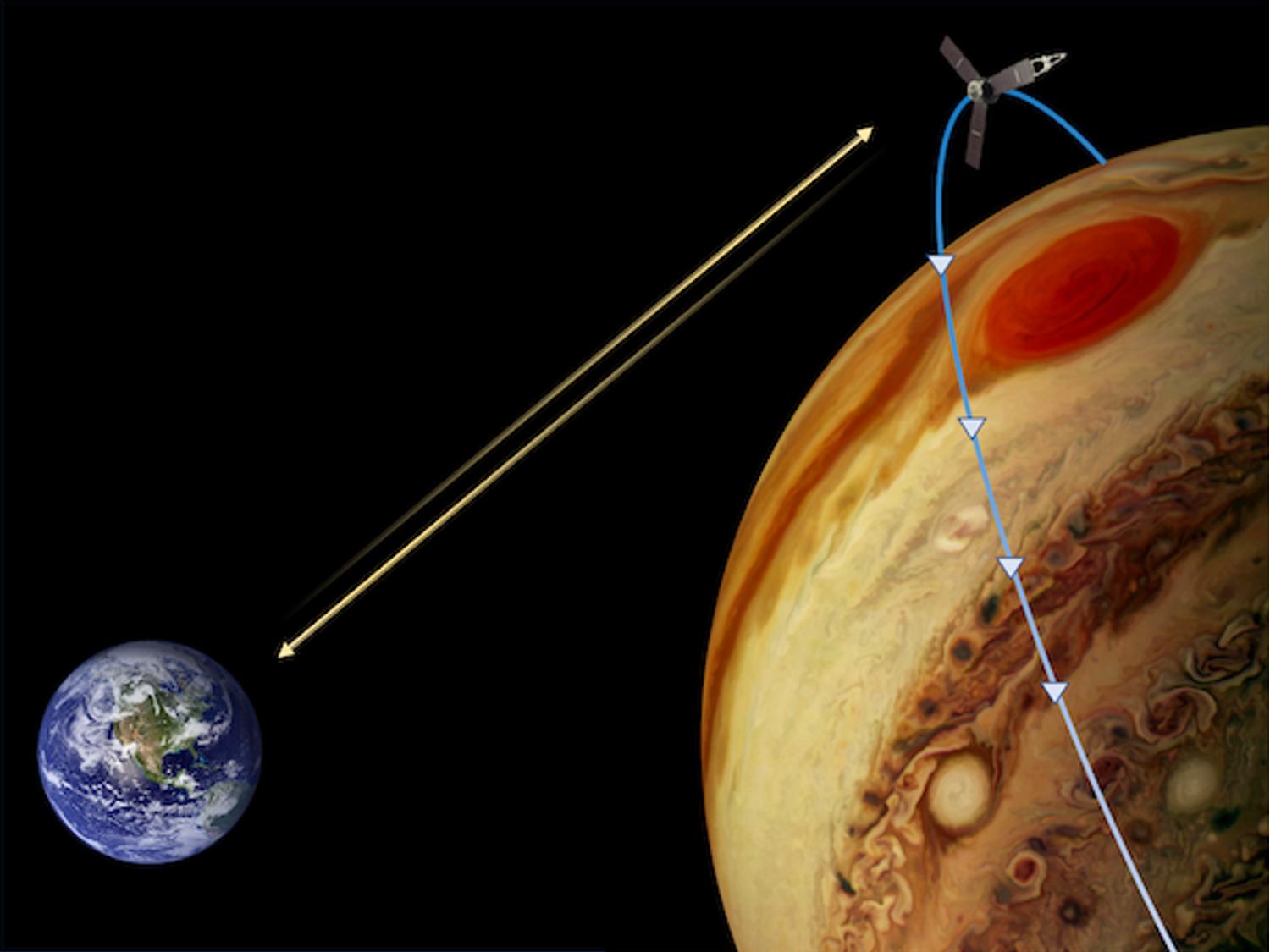
|
Measuring the Gravity of Jupiter’s Great Red Spot
- Click the image above for a larger view
- Full-Res JPEG (1500 x 1125) (98.7 kB)
- Full-Res TIFF (1500 x 1125) (2.4 MB)
Caption:
This representation depicts how NASA's Juno mission obtained gravity science data of Jupiter's Great Red Spot. The Juno spacecraft flew twice over the crimson vortex in 2019 at low altitudes with the goal of picking up its subtle gravitational signal. The concentration of mass related to the powerful winds surrounding the Great Red Spot induced a minute Doppler shift in the spacecraft's radio signals that could be measured by a NASA's Deep Space Network tracking antenna on Earth.
With Juno traveling at about 130,000 mph (209,000 kph) over Jupiter's cloud deck, mission scientists were able to measure velocity changes as small 0.01 millimeter per second This enabled them to constrain the depth of the Great Red Spot to about 186 miles (300 kilometers) below the cloud tops.
Background Info:
More information about Juno is at https://www.nasa.gov/juno and https://missionjuno.swri.edu .
Cataloging Keywords:
| Name | Value | Additional Values |
|---|---|---|
| Target | Jupiter | |
| System | Jupiter | |
| Target Type | Planet | |
| Mission | Juno | Deep Space Network (DSN) |
| Instrument Host | Juno | |
| Host Type | Orbiter | |
| Instrument | ||
| Detector | ||
| Extra Keywords | Atmosphere, Color, Radio, Storm | |
| Acquisition Date | ||
| Release Date | 2021-10-28 | |
| Date in Caption | ||
| Image Credit | NASA/JPL-Caltech/SwRI | |
| Source | photojournal.jpl.nasa.gov/catalog/PIA24820 | |
| Identifier | PIA24820 | |
